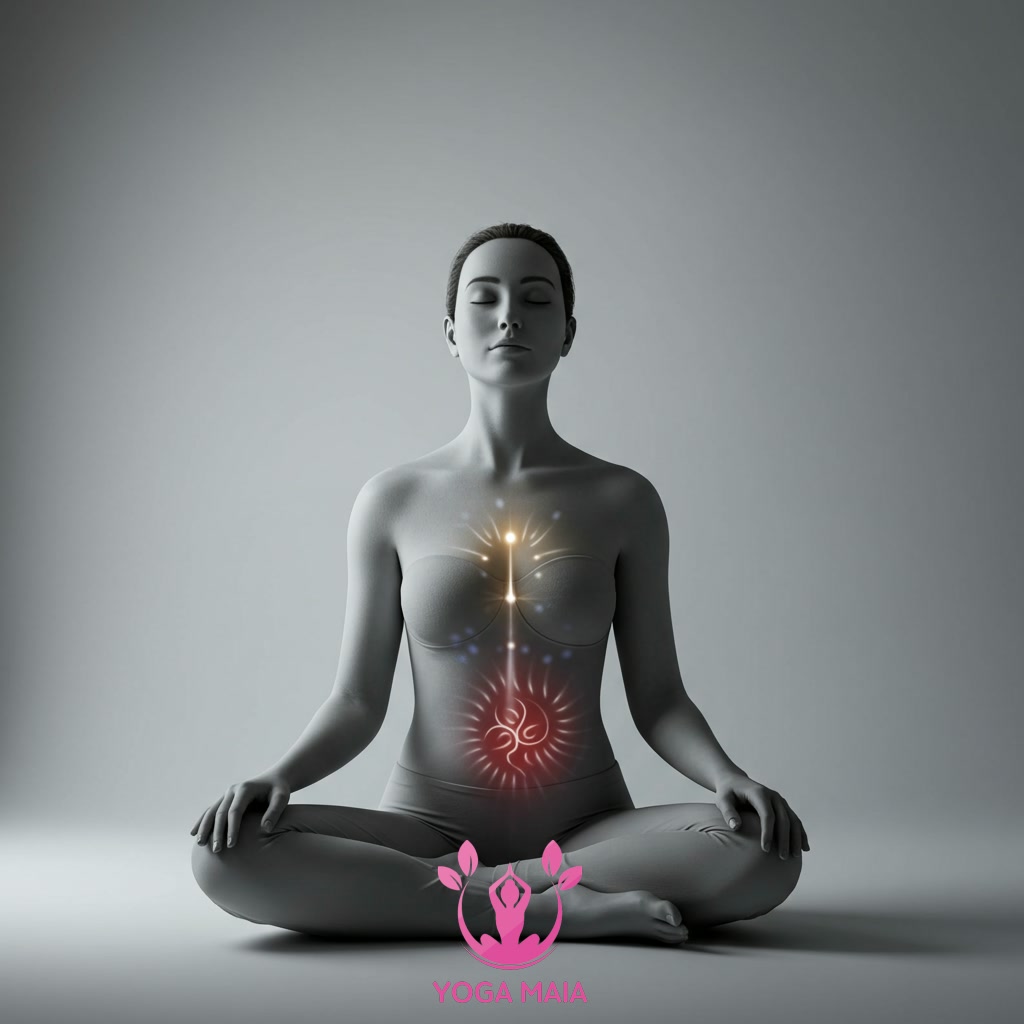Yoga Blog
Yoga Breathing Techniques for Enhanced Focus and Concentration

This content explores how specific yoga breathing techniques can significantly improve mental focus and concentration. It details various yogic breathing practices designed to calm the nervous system and quiet the mind. By regulating breath effectively, individuals can cultivate a state of clarity and sustained attention, leading to enhanced cognitive performance.
Table of Contents
- Section 1: Introduction: The Power of Breath and Yoga for Focus
- Section 2: Understanding the Link Between Breath, Mind, and Concentration
- Section 3: Essential Yoga Breathing Techniques (Pranayama) for Enhanced Focus
- Section 4: How to Practice Specific Breathing Techniques Step-by-Step
- Section 5: Integrating Breathing Practices into Your Daily Routine for Lasting Focus
- Section 6: Beyond Focus: Additional Benefits of Conscious Breathing
Section 1: Introduction: The Power of Breath and Yoga for Focus
Welcome to the journey of enhancing your mental clarity and focus through the ancient practice of yoga, specifically focusing on its powerful breathing techniques. In our fast-paced world, maintaining concentration can feel like an uphill battle, with distractions constantly vying for our attention. However, the simple, yet profound act of conscious breathing offers a direct pathway to a calmer mind and improved cognitive function. Yoga recognizes the intricate connection between breath (Prana) and the mind. By learning to regulate your breath, you gain a tool to manage your mental state, quiet the internal chatter, and cultivate a steady, focused awareness. This introduction will explore the fundamental principles behind this connection and how harnessing the power of your breath, within the framework of yoga, can unlock your potential for deeper and more sustained focus.
 Introduction: The Power of Breath and Yoga for Focus
Introduction: The Power of Breath and Yoga for Focus
Section 2: Understanding the Link Between Breath, Mind, and Concentration
The ancient practice of yoga reveals a profound and often overlooked connection between our breath, our state of mind, and our capacity for concentration. Our breath is not merely a physical process; it acts as a direct bridge between the body and the mind. When we are stressed or anxious, our breath becomes shallow and rapid, mirroring and often exacerbating our mental turmoil. Conversely, by consciously regulating and deepening the breath, we can directly influence the nervous system, shifting it towards a state of calm. This deliberate calming of the physiological state reduces mental chatter and quiets the ‘noise’ in the mind, creating fertile ground for sustained focus and improved cognitive function. Understanding this fundamental link is the first step in harnessing the power of yoga breathing to enhance mental clarity.
 Understanding the Link Between Breath, Mind, and Concentration
Understanding the Link Between Breath, Mind, and Concentration
Section 3: Essential Yoga Breathing Techniques (Pranayama) for Enhanced Focus
Building upon the understanding that breath is intrinsically linked to mental states, the practice of Pranayama, the yogic science of breath control, offers specific techniques designed to cultivate enhanced focus and concentration. These essential breathing exercises move beyond simple respiration, involving conscious regulation of the inhale, exhale, and retention of breath in specific patterns. By directing and controlling the flow of prana, or life force energy, through the breath, practitioners can calm the fluctuations of the mind (chitta vritti) and create a stable internal environment. This deliberate regulation helps to quiet distracting thoughts, reduce anxiety, and anchor attention firmly in the present moment, thereby building the capacity for sustained mental clarity required for deep concentration.
 Essential Yoga Breathing Techniques (Pranayama) for Enhanced Focus
Essential Yoga Breathing Techniques (Pranayama) for Enhanced Focus
Section 4: How to Practice Specific Breathing Techniques Step-by-Step
Following the introduction to Pranayama, this section details practical steps for performing key breathing exercises specifically designed to enhance focus and concentration. We will explore techniques such as Ujjayi breath, often called the Victorious Breath, which involves a gentle constriction at the back of the throat to create a soft, audible sound during both inhalation and exhalation, helping to anchor the mind. Another vital practice is Nadi Shodhana, or Alternate Nostril Breathing, performed by using the fingers to regulate the flow of breath through one nostril at a time, which is highly effective in calming the nervous system and balancing the mind. Each step in these techniques requires mindful attention to the breath’s journey and quality, building a foundation for sustained mental clarity and improved cognitive function through consistent yoga practice.
 How to Practice Specific Breathing Techniques Step-by-Step
How to Practice Specific Breathing Techniques Step-by-Step
Section 5: Integrating Breathing Practices into Your Daily Routine for Lasting Focus
Integrating breathing practices into your daily routine is key to cultivating lasting focus that extends beyond dedicated exercise sessions. Start small by incorporating brief moments of mindful breathing into your existing schedule. This could be five minutes upon waking, during a work break, or before a meal. Link the practice to a trigger habit, such as before checking emails or after your morning coffee. Find a quiet spot where you can sit undisturbed, even for just a few breaths. Consistency is more important than duration; regular short practices build resilience and train your mind to return to a state of calm focus more easily throughout the day. Over time, these integrated moments create a powerful foundation for sustained concentration and mental clarity.
 Integrating Breathing Practices into Your Daily
Integrating Breathing Practices into Your Daily
Section 6: Beyond Focus: Additional Benefits of Conscious Breathing
While enhanced focus is a primary benefit, conscious breathing practices offer a wealth of advantages that extend far beyond cognitive improvement. Regular, mindful breathing calms the nervous system, significantly reducing stress and anxiety levels. This physiological shift can lead to better emotional regulation, helping individuals navigate challenging feelings with greater ease. Furthermore, consistent breathwork can improve sleep quality, boost overall energy levels, and even positively influence physical well-being by promoting better circulation and digestion. By cultivating awareness of the breath, you unlock a powerful tool for holistic health, impacting not just your mental clarity but also your physical and emotional states. These far-reaching benefits underscore the profound transformative potential of simple, conscious breathing.
 Beyond Focus: Additional Benefits of Conscious Breathing
Beyond Focus: Additional Benefits of Conscious Breathing
